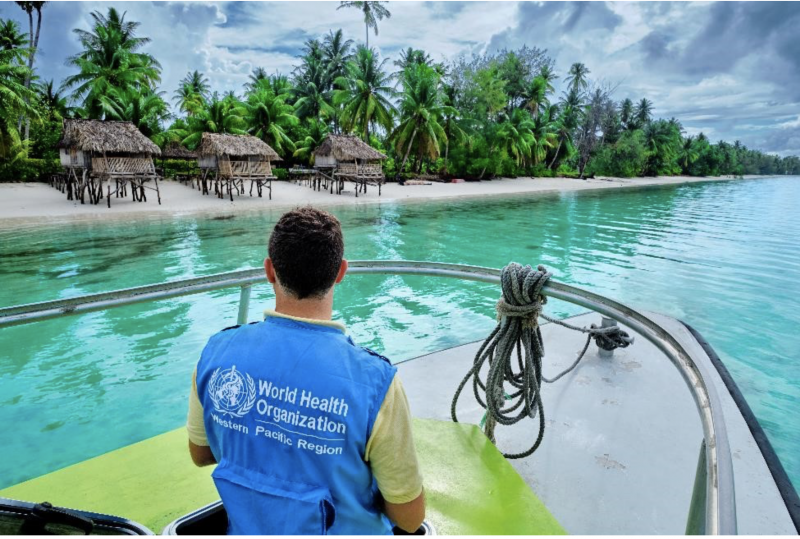
Strengthening mental health services in the Pacific during COVID-19 and beyond
Health System & UHC
February 24, 2022
It was a special day on Abemama Island when community leaders gathered in the ‘maneaba’, the meeting house at the heart of every community in Kiribati. Tekinano Karereiti, a primary health care worker, was facilitating a discussion about mental health. Community dialogue, the practice of listening and talking to each other on important issues, is deeply grounded in the history and culture of the Pacific Islands and this was a good opportunity to raise awareness of an increasingly important issue for islanders.
“Mental health is an issue in Kiribati because of stigma, there is a lack of understanding. People believe mental health is a spiritual issue and needs to be treated with magic,” Tekinano explained.
The session focused on what could be done to prevent mental illness, how to look after your own and others’ well-being, and what community leaders can do to identify and refer people who need support to the mental health team on the main island of South Tarawa. Community members play a central role in helping improve understanding of and managing mental health issues in the country.
In Kiribati, a country with a population of just over 119 000, communities experience many stressors, including the COVID-19 pandemic and climate change. Strict control over entry to the country and measures to reduce the risk of transmission of COVID-19 have resulted in lost income and separation from loved ones, which has taken its toll on the population.
Rising sea levels as a result of climate change have caused more frequent flooding, meaning the few edible plants that grow on the atoll die and the fresh drinking water wells become very salty. This has led to food and water shortages on the outer islands, leading people to move to the main island, which has subsequent issues of over-crowding and economic hardship.
The village meeting was part of a series of mental health awareness-raising sessions and trainings provided by the Ministry of Health in Kiribati and based on WHO’s mental health gap action (mhGAP) programme. The series was made possible through a WHO Division of Pacific Technical Support facilitated mhGAP Training of Trainers course, supported through the UHC Partnership.
Tekinano Karereiti was one of seven mental health professionals in Kiribati who completed the mhGAP Training of Trainers course, which took place online December 2020 – March 2021. The participants have since trained nearly 200 nurses, nurse aides, police officers, village security personnel, church members and others working in schools in mental health identification and management , both on the main island and 3 outer islands.
“We believe this helps communities to come seek help early, and to know more about mental health,” said Dr Arite Katherine, head of the department of mental health, Tungaru Central Hospital in South Tarawa.
Following the trainings, the Ministry of Health has seen a reduction in the referral of people with chronic mental illness to the mental health department at Tanguru Central Hospital. Going forward, the mental health team plans to continue building resilience in communities to support mental health.
WHO mental health support across the Pacific
WHO, through the UHC Partnership, supports Ministries of Health in 21 Pacific island countries and areas to strengthen mental health service provision, which is particularly important during the COVID-19 pandemic. All surveyed Pacific island countries and areas reported disruption to one or more of their mental health services since the COVID-19 pandemic began (WHO, 2020). The greatest disruption has been to community-based activities and services for vulnerable groups. These include school mental health programmes, caregiver interventions and outreach services, ante- and postnatal services and services for young people and older adults.